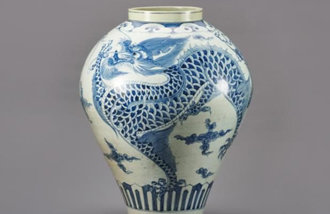Government Partys Periodicals Law Controversy
Government Partys Periodicals Law Controversy
Posted November. 30, 2004 22:49,
On November 30, the Uri Party announced in relation to the Law on Periodical Publications that it would use the number of copies sold as the standard for determining market shares in order to restrain monopolistic newspaper providers. The decision is being criticized as arbitrary, given the fact that the Fair Trade Act defines market shares as determined by total sales revenue.
Uri Partys Assemblyman Woo Sang-ho said during a phone conversation with Dong-A, There was a meeting of the Uri Partys national assemblymen who serve on the Culture and Tourism Committee. It was decided at the meeting that the assessment standard would be the number of copies sold rather than total circulation or sales revenue.
According to Assemblyman Woo, the number of copies sold will include not only home subscriptions and copies sold at newspaper stands and other street vendors, but also free copies distributed for a limited time on the understanding that they would lead to new subscriptions.
The current draft of the Law on Periodical Publications states, without actually specifying a criterion for determining market share, that a single newspaper company with 30 percent or more of the market share, or three companies who collectively hold 60 percent or more, will be designated as monopolies and become subject to such disadvantages as being denied support from the Periodicals Development Fund, which will be newly established.
On November 5, the Ministry of Culture and Tourism made an authoritative interpretation regarding total revenue, which was being considered as a possible index for determining market share, by stating that sales revenue records as of the end of October showed that, among the 36 daily newspaper providers, the top three (Dong-A, Chosun, and Joongang) collectively occupied 44.17 percent of the market.
Regarding the Uri Partys decision to set the number of copies sold as the standard for calculating market share, opposition party members and authorities in media studies assert that the move is a ploy to include by any means possible Dong-A, Chosun, and Joongang in the definition of monopolies.
Assemblyman Park Hyung-jun of the Grand National Partys Special Committee on Media Development remarked, The Uri Party adopted the total number of copies sold over the amount of total revenue as specified by the Fair Trade Act because the latter could not be used to bind the top three newspaper companies, adding, This proves that the Law on Periodical Publications is contrived and arbitrary. The government party is undermining its own bill by compounding its unconstitutionality.
In response, Assemblymen Woo stated that the committee members had not even verified whether the new criterion would push the collective market share of Dong-A, Chosun, and Joongang over the 60 percent line.
Meanwhile, some are arguing that the daily newspapers selected for market share inspection should be limited to general papers published in the Seoul area. The controversy over the alleged arbitrariness of the government partys periodicals law is thus expected to amplify even further.
The Ministry of Culture and Tourism pronounced on November 5 that the Law on Periodical Publications should apply to all daily newspapers including those specializing in sports or economy, as well as regional newspapers.
Seung-Heon Lee ddr@donga.com







